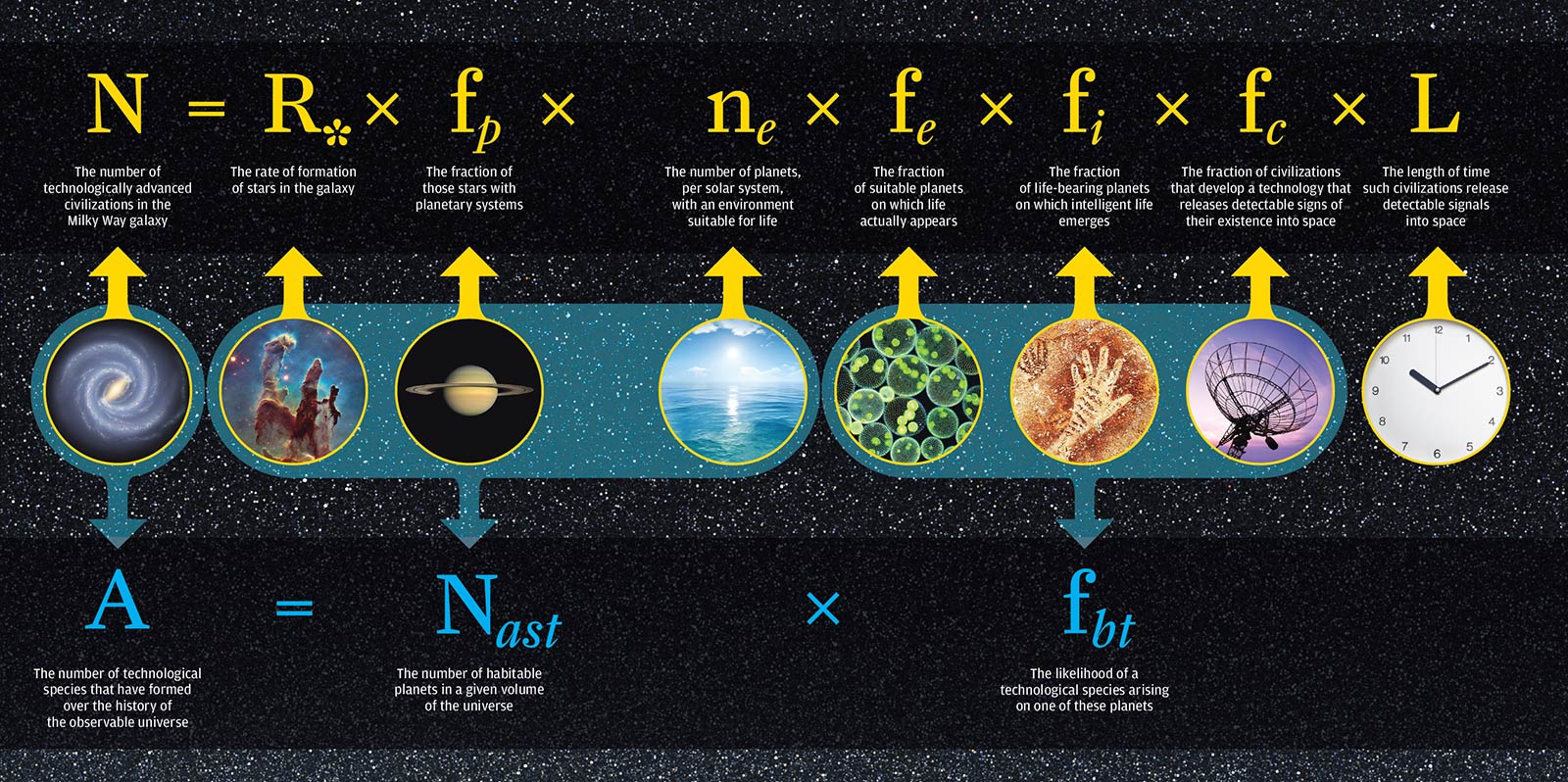Science
Related: About this forumNew Paradigms for SETI: Cosmic Archeology
The Centauri Dreams website has run several recent posts on the Search for Extra-Terrestrial Intelligence that suggest new directions for the search. The most recent: Perspectives on Cosmic Archeology discusses the implications of the final factor in the Drake Equation: The lifetime of a technological civilization.

The idea is to calculate how unlikely our advanced civilization would be if none has ever arisen before us. In other words, Frank and Sullivan want to put a lower limit on the probability that technological species have, at any time in the past, evolved elsewhere than on Earth. Here’s how their paper describes this quest:

.............//snip
.............//snip
As a commentary on that last paragraph, I'd like to offer Randall Munroe's famed statement:

That sentiment has been shared by Prof. Steven Hawking, as well as the late Dr. Carl Sagan and Arthur C. Clarke.
cantbeserious
(13,039 posts)eom
longship
(40,416 posts)Not even Frank Drake does that!
The Drake equation was the topic of a symposium on life in the universe in 1961. Let's let Frank Drake speak for himself.
Frank Drake
So anybody using the Drake equation to argue for, or against, intelligent life in the galaxy do not understand the original purpose of the Drake equation.
That is why one must dismiss all such arguments. The Drake equation is only the agenda of a single meeting. It expresses solely the evaluation of what it would take to succeed in a radio search, given what was known in 1960.
Yet, the Drake equation still informs, but solely in discovering radio emanations. SETI has gone past that. Just ask Frank Drake, who is still active.
And don't get me started about Paul Davies. I have a bit of a problem with folks who take money from the Templeton Foundation.
This entire article is utter rubbish.
Fumesucker
(45,851 posts)Discovery of other civilizations if it happens will I suspect be some sort of serendipitous event rising out of something quite unrelated.
For instance I could see evidence showing up from the Large Synoptic Survey Telescope slated to go online in 2023, it will be a remarkably sensitive way of detecting changes in the sky over short periods of time and the entire dataset will be available online to anyone who wants to search it in whatever manner.